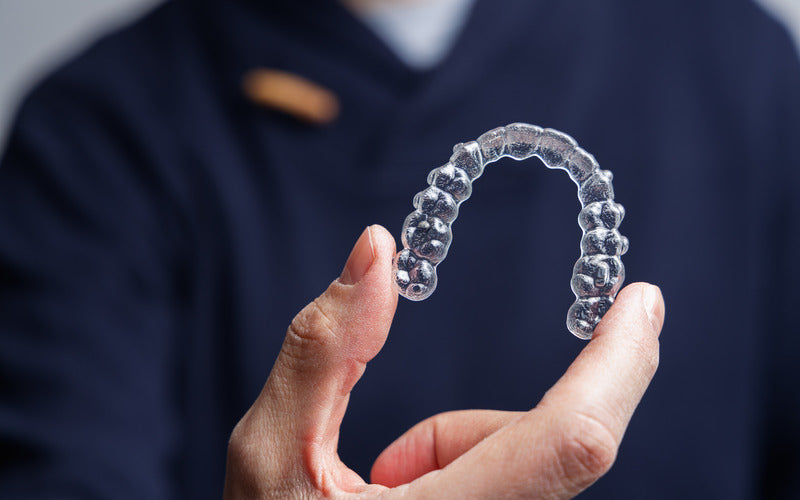The Best Foods for Senior Skincare
As we age, our skin undergoes various changes, including a loss of elasticity, increased dryness, and a greater susceptibility to damage. While there are numerous skincare products available to address these concerns, maintaining healthy skin starts from within.
Related Topics (Sponsored Ads):
Maintaining healthy skin is essential for people of all ages, and seniors are no exception. However, as individuals age, their skin becomes more vulnerable to various factors that can lead to dryness, wrinkles, and a dull complexion. This is why it is crucial to focus on senior skincare through proper nutrition. Here are some reasons why it is important:
Overall Skin Health: The skin is the body's largest organ and serves as a protective barrier against external elements. Proper nutrition plays a vital role in maintaining overall skin health. Nutrient deficiencies can compromise the skin's integrity and impair its ability to function optimally. By consuming a balanced diet rich in essential nutrients, seniors can provide their skin with the necessary building blocks for repair, regeneration, and protection.

Delaying Signs of Aging: Aging is a natural process that affects the skin's appearance and texture. However, certain nutrients can help slow down the signs of aging. Antioxidants found in fruits, vegetables, and other nutrient-rich foods combat free radicals, which are unstable molecules that contribute to premature aging. By including antioxidant-rich foods in their diet, seniors can help reduce the appearance of wrinkles, fine lines, and age spots.
Protection against Environmental Damage: The skin is constantly exposed to environmental stressors, such as UV radiation, pollution, and harsh weather conditions. These factors can damage the skin's structure and accelerate the aging process. Consuming foods rich in antioxidants, such as berries and green tea, can help protect the skin against these damaging effects by neutralizing free radicals and reducing inflammation.
Hydration and Moisture Retention: Dryness is a common issue in senior skincare. Proper nutrition can help combat dry skin by ensuring adequate hydration and moisture retention. Consuming foods with high water content, such as fruits and vegetables, can contribute to hydration from within. Additionally, omega-3 fatty acids found in fatty fish and nuts help maintain the skin's natural moisture barrier, preventing excessive dryness and promoting a supple complexion.
A balanced diet rich in essential nutrients can significantly contribute to senior skincare. In this article, we will explore the top seven foods that promote healthy skin in seniors, helping them maintain a youthful and radiant complexion.
Berries
Berries, such as blueberries, strawberries, blackberries, and raspberries, are packed with antioxidants that combat free radicals and protect the skin from oxidative stress. These fruits are also rich in vitamin C, which promotes collagen synthesis, essential for maintaining skin elasticity. Incorporating a variety of berries into the diet can enhance skin health and reduce the signs of aging. Enjoy them in smoothies, yogurt bowls, or as a refreshing snack.
Fatty Fish
Fatty fish like salmon, mackerel, and sardines are excellent sources of omega-3 fatty acids. These essential fats play a crucial role in maintaining skin health by reducing inflammation, moisturizing the skin, and preventing dryness and itchiness. Omega-3 fatty acids also support the skin's barrier function, helping to retain moisture and protect against external pollutants. Include fatty fish in your diet at least twice a week for maximum benefits.
Nuts and Seeds
Nuts and seeds, such as almonds, walnuts, flaxseeds, and chia seeds, offer a wide range of nutrients beneficial for skin health. They are rich in vitamin E, a powerful antioxidant that helps protect the skin from damage caused by free radicals and UV radiation. Additionally, nuts and seeds provide essential fatty acids, minerals, and proteins that promote healthy skin and combat inflammation. Sprinkle them over salads, add them to smoothies, or enjoy them as a snack.
Colorful Vegetables
Including a variety of colorful vegetables in the diet can do wonders for senior skincare. Vegetables like spinach, kale, carrots, bell peppers, and sweet potatoes are rich in vitamins A, C, and E, as well as antioxidants and phytonutrients. These nutrients help repair damaged skin cells, promote collagen production, and enhance skin elasticity. Additionally, the high water content in vegetables helps hydrate the skin from within. Aim to fill half your plate with vegetables at each meal.
Citrus Fruits
Citrus fruits, including oranges, lemons, grapefruits, and limes, are renowned for their high vitamin C content. Vitamin C is essential for collagen synthesis, which helps maintain skin firmness and elasticity. These fruits also contain antioxidants that protect the skin from oxidative stress and contribute to a brighter complexion. Consuming citrus fruits regularly can promote healthy skin and reduce the appearance of wrinkles and age spots. Enjoy them as a refreshing snack or squeeze some fresh juice for a revitalizing drink.
Green Tea
Green tea is packed with antioxidants, particularly catechins, which have anti-inflammatory and anti-aging properties. These compounds help protect the skin from sun damage, reduce redness and inflammation, and improve skin elasticity. Drinking green tea regularly can also assist in maintaining hydration and promoting a more youthful skin appearance. Brew a cup of green tea and enjoy it hot or chilled throughout the day.
Yogurt and Probiotic Foods
Probiotic-rich foods, such as yogurt, kefir, and fermented vegetables, offer numerous benefits for senior skincare. These foods contain beneficial bacteria that support gut health and improve digestion. A healthy gut microbiome contributes to overall skin health by reducing inflammation, preventing acne, and enhancing nutrient absorption. Including probiotic foods in the diet can promote a healthy complexion and combat common skin issues. Incorporate yogurt into breakfast smoothies or enjoy it as a snack with some fruits and nuts.
Conclusion
Maintaining healthy skin in seniors requires a holistic approach that includes proper nutrition. The foods mentioned above, including berries, fatty fish, nuts and seeds, colorful vegetables, citrus fruits, green tea, and probiotic-rich foods, provide essential nutrients and antioxidants that promote senior skincare. By incorporating these nutrient-rich options into their diet, seniors can nourish their skin from within, reduce the signs of aging, and maintain a vibrant and youthful appearance. Remember to combine a healthy diet with regular skincare practices, sun protection, and hydration for optimal results.
As always, it is essential to consult with a healthcare professional or a registered dietitian before making any significant changes to the diet, especially for individuals with specific dietary requirements or medical conditions. Embrace these foods as part of a well-rounded approach to senior skincare and enjoy the benefits of healthy and radiant skin.




